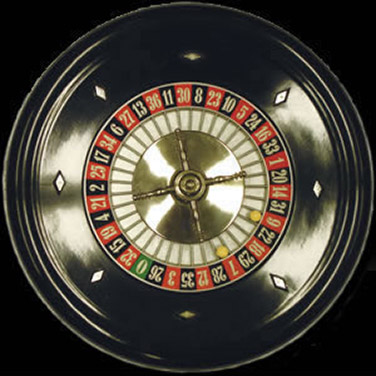Roulette

Roulette is a classic game of chance found in every gambling casino. A random number between nought and thirty-six is selected by spinning a ball in a wheel. Before each spin, the players bet on a particular number or group of numbers by placing their chips on the corresponding field on the gaming table. The winnings are paid out in set quotas depending on the odds.
History
There is much speculation surrounding the origins of roulette. For instance, the notion of the ball in a wheel is supposed to have been brought to France from the Far East by French missionaries in the sixteenth century. According to another theory, monks supposedly devised a kind of roulette wheel in Venice in the Middle Ages. The claim that roulette was invented by the mathematician and philosopher Blaise Pascal probably stems from a misunderstanding. It is fairly certain that roulette only began to develop into its current form in France in the eighteenth century. It soon became the most popular game in casinos. In the 1830s it was banned in France for almost a century. Various game variants were established during the course of the nineteenth century in Europe and America.
Mathematics
The probabilities in roulette are based on the symmetry of the game and thus abstract considerations. However, the players can determine the risk with which they wish to play themselves. An interesting question arises while observing a longer series of games. The law of large numbers proven by Jakob Bernoulli in 1690 applies: during a series of experiments, the relative frequency of a result randomly converges to the probability of the result. For instance, the relative proportion of red numbers keeps moving towards the number 18/37. However, there is not a law of absolute balance, i.e. it is not unreasonable to bet on red again after betting on red ten times.